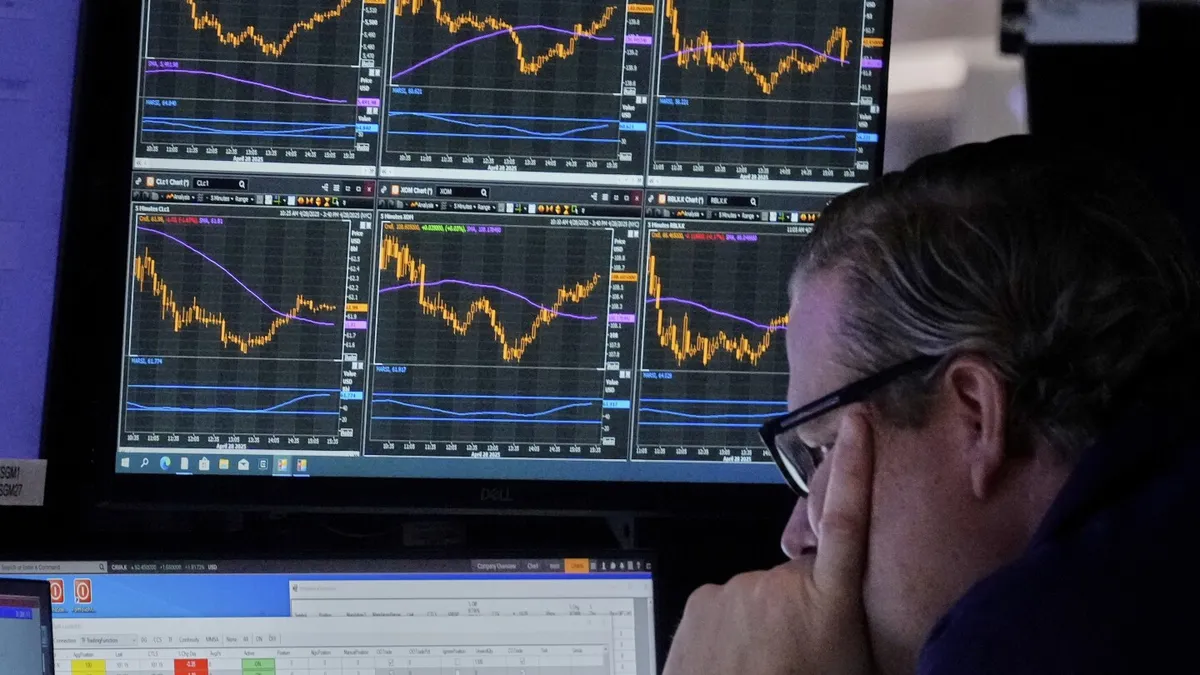
On Friday, global markets experienced a notable surge as news broke that China’s Commerce Ministry is evaluating overtures from the U.S. regarding the contentious tariffs imposed by President Donald Trump. This development led to an optimistic outlook for major indices, with futures for the S&P 500 climbing by 0.5% and the Dow Jones Industrial Average rising by 0.6%.
In Europe, the bullish sentiment continued, as Germany’s DAX soared 1.5% to reach 22,831.50. Similarly, the French CAC 40 climbed 1.3% to 7,695.70, while the British FTSE 100 saw a 0.7% increase, closing at 8,558.56. These gains reflect investor confidence in potential resolutions to trade disputes that have been affecting global economies.
In Asian trading, Hong Kong's Hang Seng index surged 1.7%, closing at 22,504.68. Meanwhile, trading in Shanghai was halted due to a public holiday. Taiwan’s benchmark index also made significant strides, jumping 2.7%. An unnamed spokesperson from China’s Commerce Ministry noted that Beijing is aware of various statements from senior U.S. officials expressing a willingness to negotiate over tariffs. This statement has contributed to the positive market sentiment.
In Japan, the Nikkei 225 gained 1% to reach 36,830.69. Notably, Japanese Finance Minister Katsunobu Kato highlighted that the country’s holdings of over $1.1 trillion in U.S. Treasury bonds could be leveraged in negotiations with Washington concerning Trump's tariffs on automobiles and other imports. This potential strategy adds another layer of complexity to the ongoing trade discussions.
Wall Street also saw positive movement, driven largely by tech giants such as Microsoft and Meta Platforms. Microsoft’s stock surged 7.6% after the company reported a remarkable 13% increase in revenue, attributed to its strong cloud computing and artificial intelligence sectors. Meta, the parent company of Facebook and Instagram, also surpassed analysts' expectations for both revenue and profit, with its stock climbing 4.2% due to increased advertising revenue supported by AI tools.
Despite the market optimism, significant uncertainty looms regarding whether President Donald Trump’s trade policies might push the economy into a recession. General Motors, for instance, reported a 0.4% drop in its stock price after it revised its profit forecast for 2025, citing a projected hit of $4 billion to $5 billion due to tariffs. McDonald’s also faced challenges, with its stock falling 1.9% after reporting weaker-than-expected revenue, despite a slight profit increase.
Recent economic indicators have presented a mixed picture, with reports indicating that more U.S. workers filed for unemployment benefits last week than anticipated, raising concerns about the job market. This has led to fears on Wall Street about a potential scenario of stagflation, where economic growth stagnates while inflation remains high. The Federal Reserve faces a challenging situation, as conventional tools to combat one issue could exacerbate the other.
In the commodities market, U.S. benchmark crude oil prices fell by 26 cents to $58.98 per barrel, while Brent crude, the international standard, decreased by 24 cents to $61.89 per barrel. The U.S. dollar also experienced a decline, dropping to 144.88 Japanese yen from 145.40 yen, whereas the euro rose to $1.1335 from $1.1292, reflecting ongoing adjustments in currency exchange rates amidst evolving economic conditions.
As the situation develops, investors remain hopeful that negotiations between the U.S. and China could lead to a resolution of trade tensions, thereby benefiting global markets in the near future.